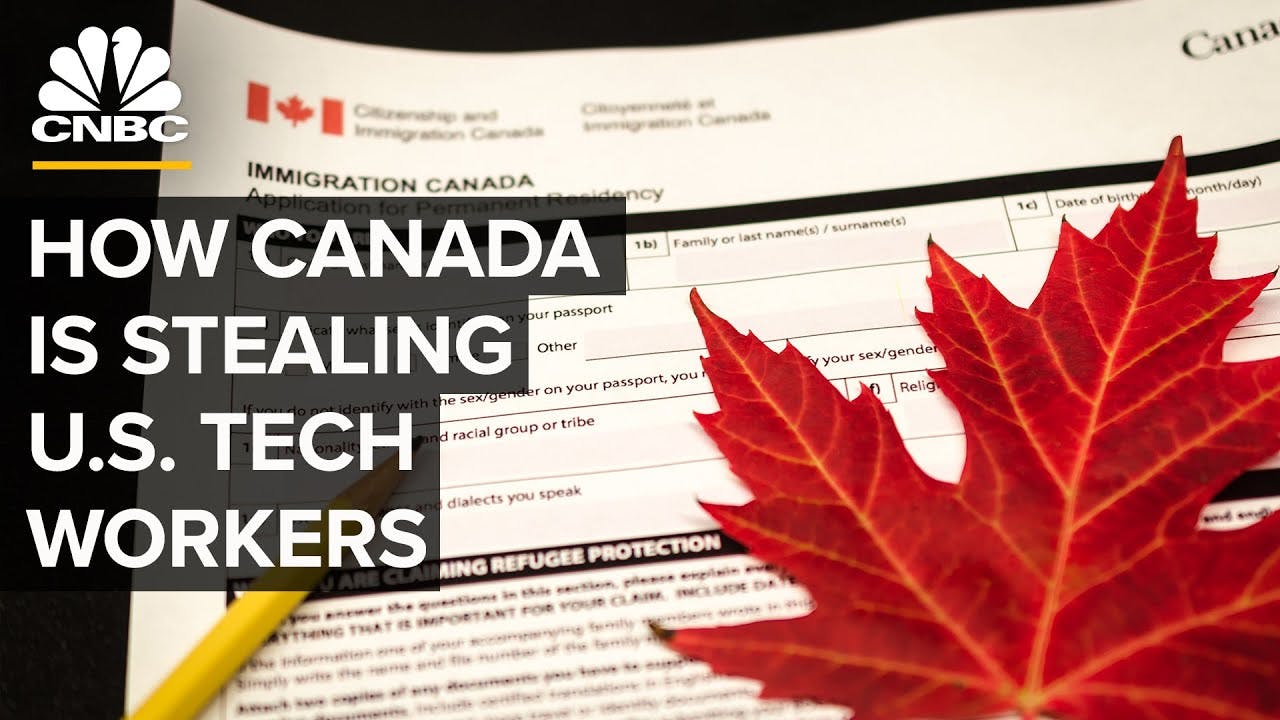How The U.S. Lost Thousands Of High-Skilled Workers To Canada
()

Introduction (00:00:00)
- The H-1B visa program is important for bringing qualified technical workers to the United States.
- The US needs to reform its immigration programs to bring in more skilled workers.
- Canada has launched initiatives to attract high-skilled workers and is becoming an alternative for tech workers.
- The US's bureaucratic visa process pushes workers to choose Canada over the US.
H-1B program (00:01:25)
- The H-1B visa is a nonimmigrant work visa for specialty occupations.
- Congress limits the number of H-1B visas available each year.
- Getting an H-1B visa has become increasingly competitive, with many applicants not being selected in the lottery.
- There are restrictions and limitations for H-1B visa holders in terms of changing jobs and working side gigs.
- The process for obtaining a green card and permanent residency is long and tedious.
- H-1B visa holders from highly populated countries experience lifetime waits for permanent residency due to country caps.
- The backlog for green card applications is extensive, with millions of people waiting, particularly from India.
- The lack of a clear pathway to permanent residency and restrictions on mobility and job changes push H-1B workers to explore other options.
Impact of tech layoffs (00:05:38)
- Big tech companies have accounted for a significant number of H-1B visa approvals.
- Layoffs in big tech companies leave H-1B visa holders in limbo and potentially facing deportation.
- Thousands of H-1B holders have lost their status due to unemployment.
- Canada opened a pilot program allowing H-1B visa holders in the US to apply for a three-year open-work permit.
- The program reached its capacity on the first day, demonstrating the interest in opportunities in Canada.
- Canada's tech market has been growing, and the country is experiencing a labor shortage in the tech industry.
- Toronto and Vancouver rank among the top tech cities, outpacing major US cities.
- Canadian work permits provide a sense of security and flexibility compared to the H-1B visa.
- Some H-1B holders have already applied and received Canadian work permits as a backup plan.
- The Canadian government has issued thousands of work permits under the pilot program.
- H-1B holders adapt well in Canada and see it as a similar alternative to the US.
Overall, the H-1B visa process, limited pathways to permanent residency in the US, and job uncertainties have led many high-skilled workers to consider Canada as a more attractive option. Canada's tech market growth and programs to attract talent have made it a competitive alternative for H-1B workers.